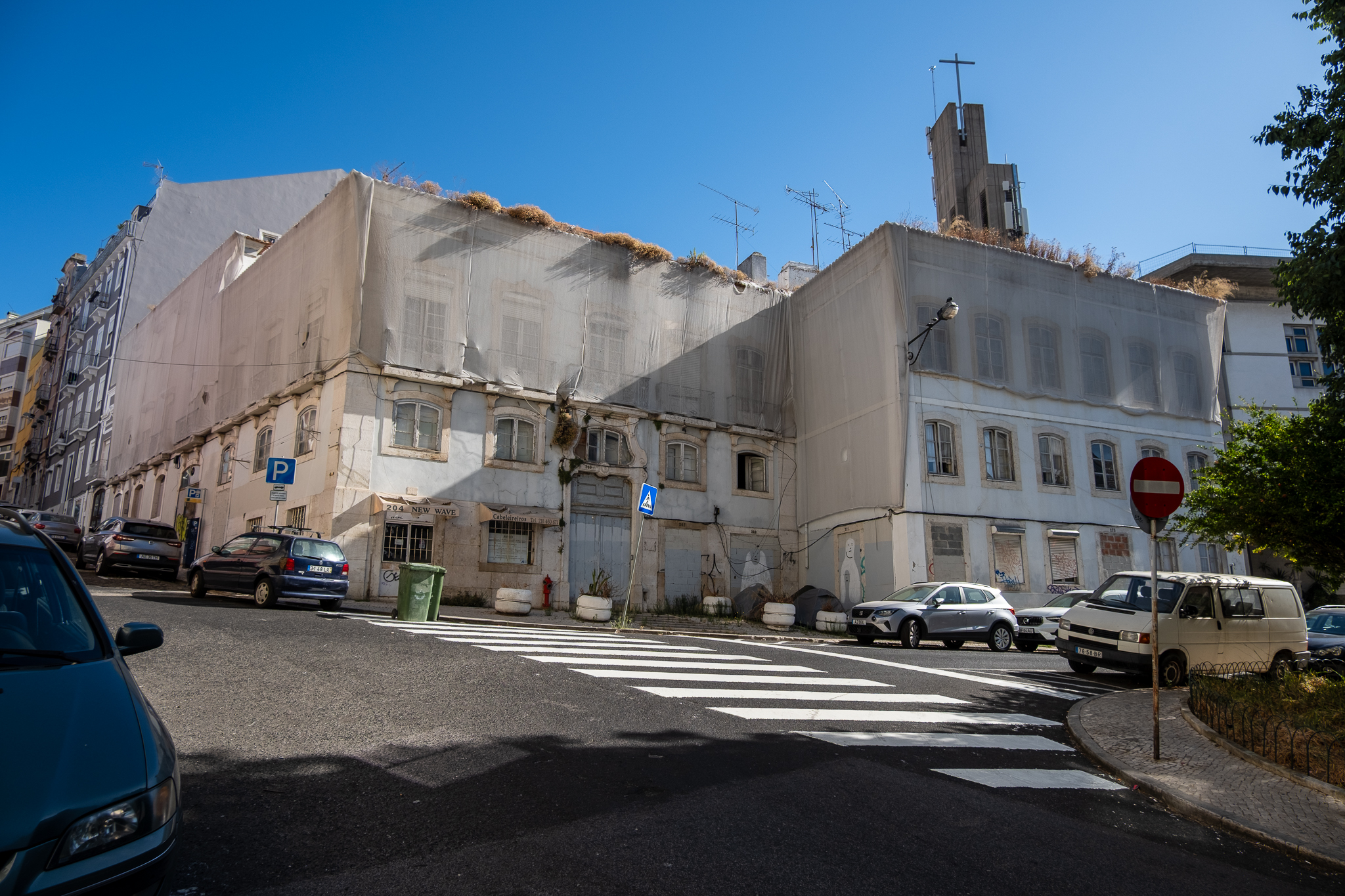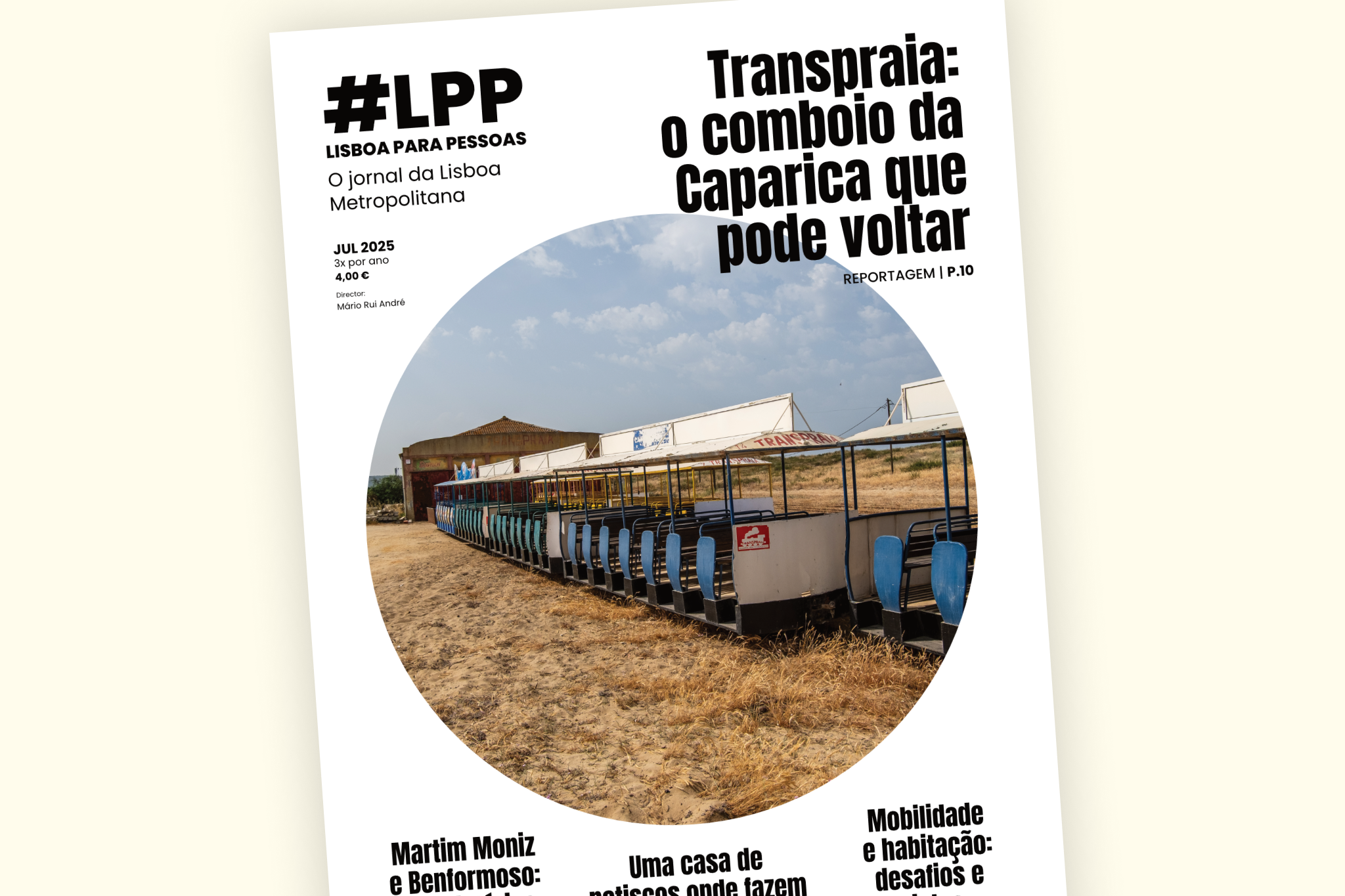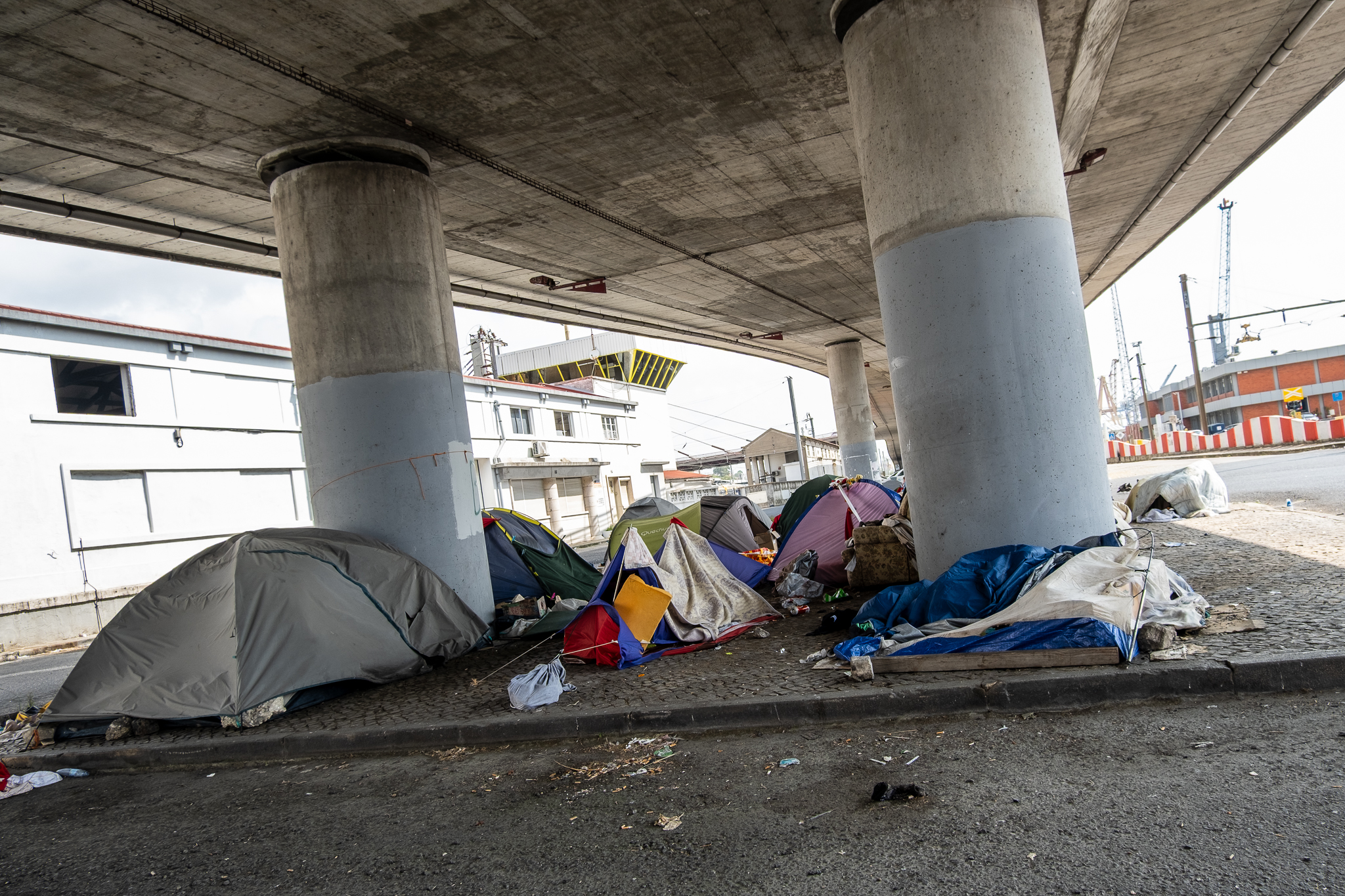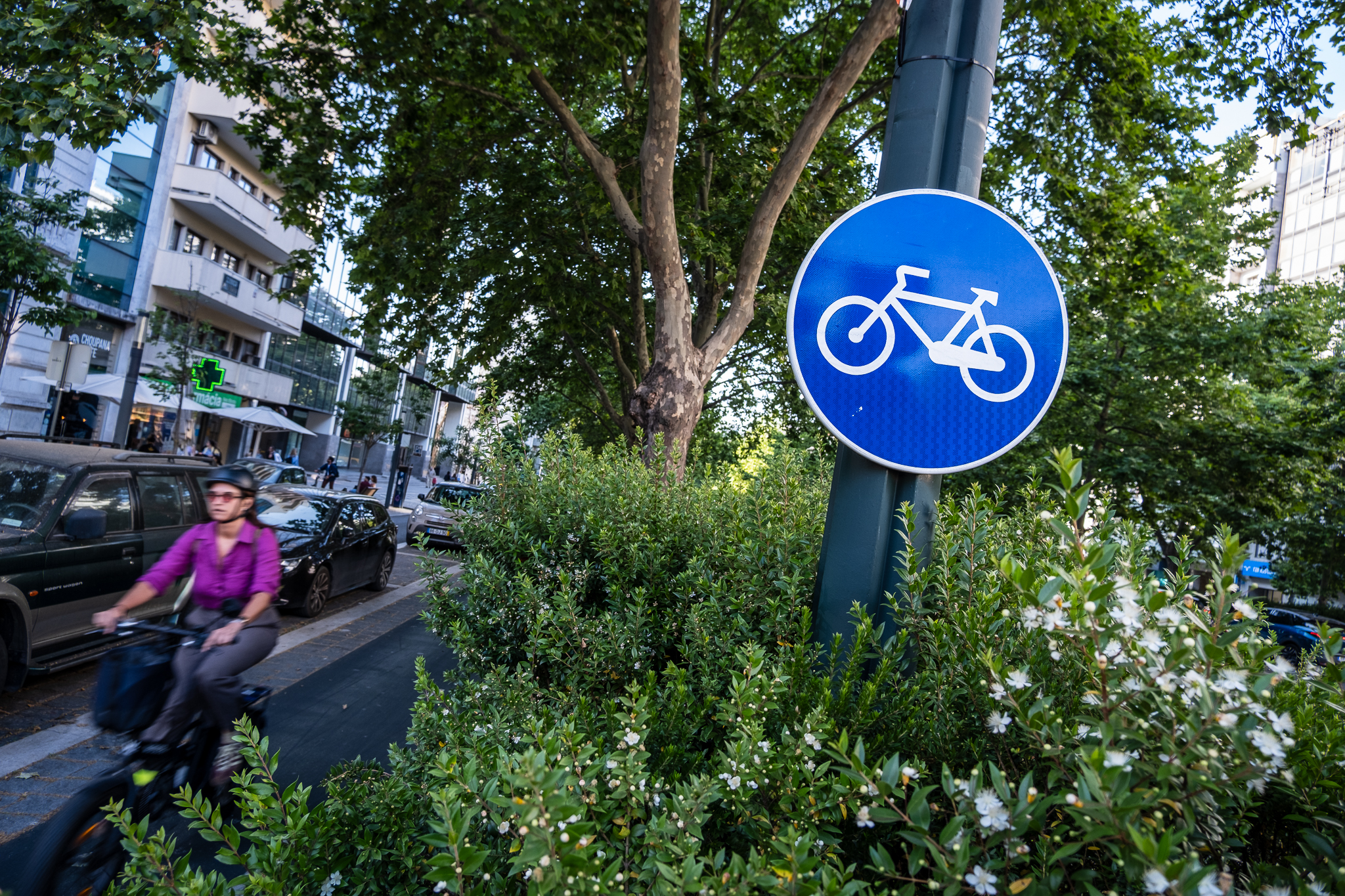Lisbon City Hall wants to create a tree-lined pedestrian corridor along Carlos Mardel and Francisco Sanches streets in order to form a continuous axis between Casal Vistoso Urban Park and Jardim do Caracol. In a first phase, only two blocks on Carlos Mardel will be intervened.

Establish a wooded pedestrian corridor between the Areeiro urban park zone and the Caracol da Penha Garden (whose inauguration is delayed) is the goal of the initiative Green Streets+. Promoted by Lisbon City Hall, it is divided into three major actions; the main one consists of planting trees along Rua Carlos Mardel.
The autarky's proposal is planting trees on a section of Rua Carlos MardelThis is a first approach to tree-planting in this part of the city, in the block north of the Alameda, in the Areeiro parish, and in the southern block, before the Arroios Market. Recognizing that this is a "difficult area"not only because it is a consolidated area, but also because it has "few green spaces in the vicinity" and that "has almost no afforestation"Gisela Costa, a landscape architect with the Lisbon City Hall, explained, in a presentation session of the project in Areeiro, that the idea is "put up trees being aware that parking is important" and that it will therefore be necessary "some balance" in this intervention, allowing "create a pedestrian alignment with some freshness" without significantly suppressing parking.


According to the plan presented, the tree-lined alignment that will be created on Rua Carlos Mardel "on a trial basis" will consist of placing 20 treesand, to do so, will be taken from only eight seats three on the north side, in the parish of Areeiro, and five on the south side, in Arroios. In the case of the Arroios parish, the loss will be compensated with the painting of six spaces near Carlos Mardel, in coordination with the Council; the tree-planting intervention will also allow for the creation of a bicycle park on Rua Carlos Mardel in a small surplus space. The planting will be done away from the façades of the buildings, and also to safeguard in this aspect "it has to be a medium-sized, deciduous tree"allowing shade in summer and light in winter. "We are aware that a species to be placed here cannot be too leafy"The municipality says it is open to suggestions from the population via e-mail ruasverdes@cm-lisboa.pt. At the same time, proper distancing of trees from people's homes will be ensured to guarantee that branches do not cover windows or block views.

Gisela and the remaining Lisbon City Hall technical team present at the session in Areeiro explained that the Green Streets+ initiative is intended to be gradual, to also allow the population to gradually internalize the advantages of more shaded, cooler and ultimately green streets. Inês Cristóvão, environmental engineer, pointed out that the green structure plays a role in cooling the city, in CO2 levels, in hydrological regulation, in air quality and noise regulation, improves social welfare and public health, serves as a support to biodiversity, and is also a factor of economic valuation. "Areas that are next to green spaces are more economically valued"he pointed out. "And we're also talking about benefits that go into people's physical and mental health."
"Cities are a greenhouse for heat accumulation and release"the environmental engineer detailed, highlighting phenomena such as urban heat islands, in which, at high temperatures that can be felt, especially in summer, combined with the impermeability of urban environments (Lisbon is impermeable) and the absence of trees, walking on the street not only becomes uncomfortable but can be dangerous from the point of view of health, particularly for more sensitive populations. "With climate change, the tendency is for us to have an increase in average temperature, more intense precipitation and an increase in extreme phenomena, as we have seen in recent times."


Recognizing the impact of afforestation on the urban ecosystem, the City of Lisbon is developing the Green Streets+ initiative, which is part of the program Cooling Down the Citywhich includes, among other initiatives, an intervention in 15 junctions in the Colonias neighborhood, in Arroios, with the planting of 70 trees. "We have the project done, but it needs to move up in the county budget priorities for it to be executed." Green Streets+ has European funding through the Conexus, program involving €6.2 million of EU funds for various projects to be completed by August 2024. Another Conexus-funded project is the two mini-forests created in Areeiroin the urban parks of Vale da Montanha and Casal Vistoso.

In addition to the afforestation of Rua Carlos Mardel, the Ruas Verdes+ project will include the placement of pots in some streets of Bairro dos Actores, in Areeiro. Gisela Costa spoke at a "reversible intervention"The aim of the project is to test the presence of low-growing trees in that neighborhood. "We don't want to come to this neighborhood and impose this. We want to experiment and see if people value the trees or not. We want them to even come and ask us to put more trees"She said the pots will be 90 cm wide and one meter high and will be placed at strategic points in the neighborhood, without removing parking spaces. For example, one of the options is to place them in the spaces after the crosswalks, where there is no parking. Unlike the trees that will be planted in Carlos Mardel, these trees that will be installed in pots will not have their roots piercing the soil, so some of their functions, such as regulating that soil, will not be fulfilled. Even so, they will allow to capture CO2 from the atmosphere, shade streets and also refresh them in periods of greater heat, for example. In all, there are 32 pots to spread around the neighborhood.

With these "pop-up" pots and the afforestation of a section of Rua Carlos Mardel, the municipality wants to create a pedestrian corridor that invites people to circulate between the set of urban parks adjacent and close to Areeiro (Casal Vistoso, Vale da Montanha, Bela Vista, Vale de Chelas) and the new Jardim do Caracol da Penha. For this green corridor to be complete, it will be necessary to complete the afforestation of Carlos Mardel, up to Morais Soares, and to make the same intervention in its contiguous, Francisco Sanches Street. But this will be a task for a possible next intervention, if this one goes well.
The Green Streets+ initiative also provides for the realization of a gardening workshopsThe event is open to the public in May, where people can learn how to plant flowers and small shrubs in pots to place on their balconies and windows, thus greening their streets. "We want them to use the beautiful facades of this neighborhood to put up flower boxes. We will give clay pots to the people who take part in these workshops.", explained Inês Cristóvão. The workshops will be given by the Municipal Council's Gardening School and will also act as awareness-raising activities, with the aim of inviting the population to attune their homes to the public space.

The Green Streets initiative was presented in two public participation sessions. The first session took place on March 8 in a space of the Parish Council of Areeiro and did not register any participation; what was supposed to be a participation session, became a moment of dialogue between technicians of the municipality and the President of the Areeiro Council, who, after hearing about climate change and problems such as heat islands, reduced his intervention to parking issues - a subject that he knows to be sensitive. The session in Arroios took place a week later, on the 14th, and was (poorly) attended. Luís Castro, from the association Vizinhos de Arroios, which brings together several residents of the parish, indicated that "there are streets that have empty boilers, without trees, and then there are streets where they want to put trees in full force", referring to a previous intention to afforest Rua Francisco Sanchez. Luís said he had spoken to residents in that area and claims that there was and is a critical mass against trees. "We went door to door and people said they didn't want it." “Without wishing to call into question the meritorious work" of the Streas Verdes+ project, Luís criticized the fact that the "impose a solution on people". "I was in meetings with you. What I realized is that you were bringing a model that was already closed and that was to be done, and you wanted people to just validate it."
For his part, Miguel Pinto, from the Caracol POP association, welcomed the initiative, pointing out that "for a long time [at Caracol POP] we have been discussing among ourselves the creation of tree-lined corridors connecting streets, green spaces and points of interest in the city". He added that "we cannot in 2023, in a civilized city, be discussing trees on a street because of parking, when we apparently have many free spaces in the Alameda underground park. There is a closed floor in that park, which is half a dozen meters away "he said. "The car is very useful, but whenever it occupies a place on the street that space is captive to that person or family, whereas an open space or a piece of sidewalk can be used by several people"said the Caracol POP spokesman. Carlos Sacramento, a resident of the parish, used the session to propose a tree-planting solution for Rua da Penha de França - the section that is still in the parish of Arroios - which would allow for increased car parking, trees, wider pedestrian spaces and the creation of leisure areas.
The Lisbon City Council did not share with Lisboa Para Pessoas the public presentations held in Areeiro and Arroios, despite successive contacts. We have therefore shared in this article photos of the slides shown at the sessions.






